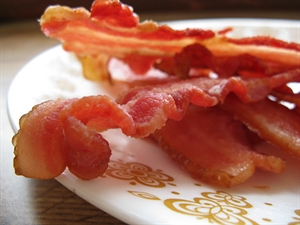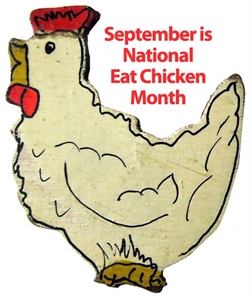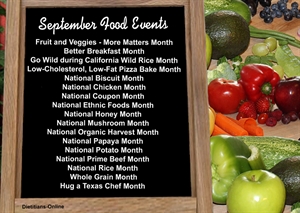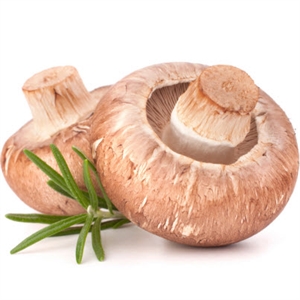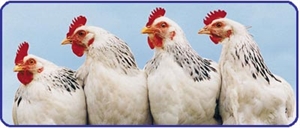Whole Grains Month on September, 2024: whole grain or or single grain infant cereal?
September, 2024 is Whole Grains Month 2024.
As an Amazon Associate I earn from qualifying purchases.
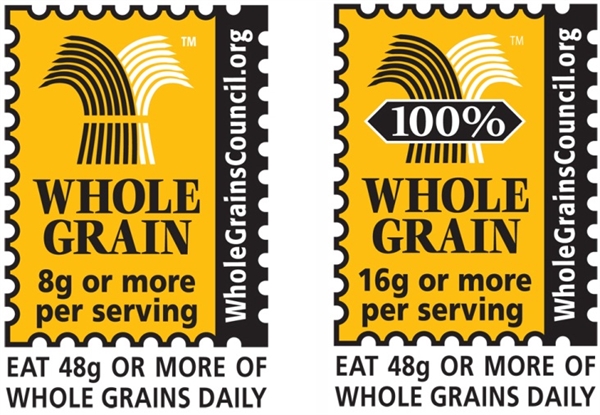
Why not cereal?
Cereal is not at all necessary, particularly the baby cereals. Regular (whole grain) oatmeal is more nutritious for your baby.
The truth is, there is nothing special about these foods that makes them better to start out with. Babies don't actually even need rice cereal
Meat provides additional protein, zinc, B-vitamins, and other nutrients which may be in short supply when the decrease in breast milk occurs. A recent study from Sweden suggests that when infants are given substantial amounts of cereal, it may lead to low concentrations of zinc and reduced calcium absorption (Persson 1998). Dr. Nancy Krebs has shared preliminary results from a large infant growth study suggesting that breastfed infants who received pureed or strained meat as a primary weaning food beginning at four to five months, grow at a slightly faster rate. Dr. Krebs' premise is that inadequate protein or zinc from complementary foods may limit the growth of some breastfed infants during the weaning period. Both protein and zinc levels were consistently higher in the diets of the infants who received meat (Krebs 1998). Thus the custom of providing large amounts of cereal products and excluding meat products before seven months of age may not meet the nutritional needs of all breastfed infants.
Meat has also been recommended as an excellent source of iron in infancy. Heme iron (the form of iron found in meat) is better absorbed than iron from plant sources. In addition, the protein in meat helps the baby more easily absorb the iron from other foods. Two recent studies (Makrides 1998; Engelmann 1998) have examined iron status in breastfed infants who received meat earlier in the weaning period. These studies indicate that while there is not a measurable change in breastfed babies' iron stores when they receive an increased amount of meat (or iron), the levels of hemoglobin circulating in the blood stream do increase when babies receive meat as one of their first foods.
Finally, respect the tiny, still-developing digestive system of your infant. Babies have limited enzyme production, which is necessary for the digestion of foods. In fact, it takes up to 28 months, just around the time when molar teeth are fully developed, for the big-gun carbohydrate enzymes (namely amylase) to fully kick into gear. Foods like cereals, grains and breads are very challenging for little ones to digest. Thus, these foods should be some of the last to be introduced. (One carbohydrate enzyme a baby's small intestine does produce is lactase, for the digestion of lactose in milk.1)
[...]
Babies do produce functional enzymes (pepsin and proteolytic enzymes) and digestive juices (hydrochloric acid in the stomach) that work on proteins and fats.12 This makes perfect sense since the milk from a healthy mother has 50-60 percent of its energy as fat, which is critical for growth, energy and development.13 In addition, the cholesterol in human milk supplies an infant with close to six times the amount most adults consume from food.13 In some cultures, a new mother is encouraged to eat six to ten eggs a day and almost ten ounces of chicken and pork for at least a month after birth. This fat-rich diet ensures her breast milk will contain adequate healthy fats.14
Thus, a baby's earliest solid foods should be mostly animal foods since his digestive system, although immature, is better equipped to supply enzymes for digestion of fats and proteins rather than carbohydrates.1 This explains why current research is pointing to meat (including nutrient-dense organ meat) as being a nourishing early weaning food.
The results indicate that in a group of healthy, well growing 12-month-old Swedish infants one-quarter is iron-depleted, although iron deficiency anaemia is rare, and one-third may be zinc-depleted. The high cereal intake of Swedish infants from 6 months of age may have limited the bioavailability of both iron and zinc from the diet.
Conclusions: These results confirm that meat as a complementary food for breast-fed infants can provide a rich source of dietary zinc that is well absorbed. The significant positive correlation between zinc intake and exchangeable zinc pool size suggests that increasing zinc intake positively affects metabolically available zinc.
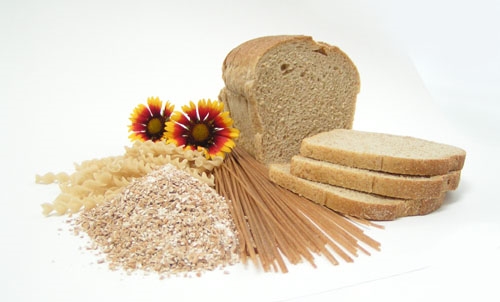
Is uncooked whole grain oats mixed in with bird seeds ok to feed my parakeet?
Whole grain Oats should be fed only if it is hulled , then it is called (groats) do not feed in summer months or warm weather, as this generates body heat and fat for your bird and is best fed in cold weather or winter months , only in very small portions.
So yes feed a little now and again.this will be OK.
Avian Care Consultant and breeder

Is whole grain oatmeal with bananas too harsh for a 10 month old?
My 6 month old LOVES bananas...but the oatmeal cereal he can't stand. I don't know if he can't tolerate it, or just doesn't like it. But everytime I give it to him he puts up a fuss. She might have eaten too much maybe? Or maybe she can't handle the bananas? Definitely ask your Ped...but they'll probably tell you to try it a few more times to see what happens.










